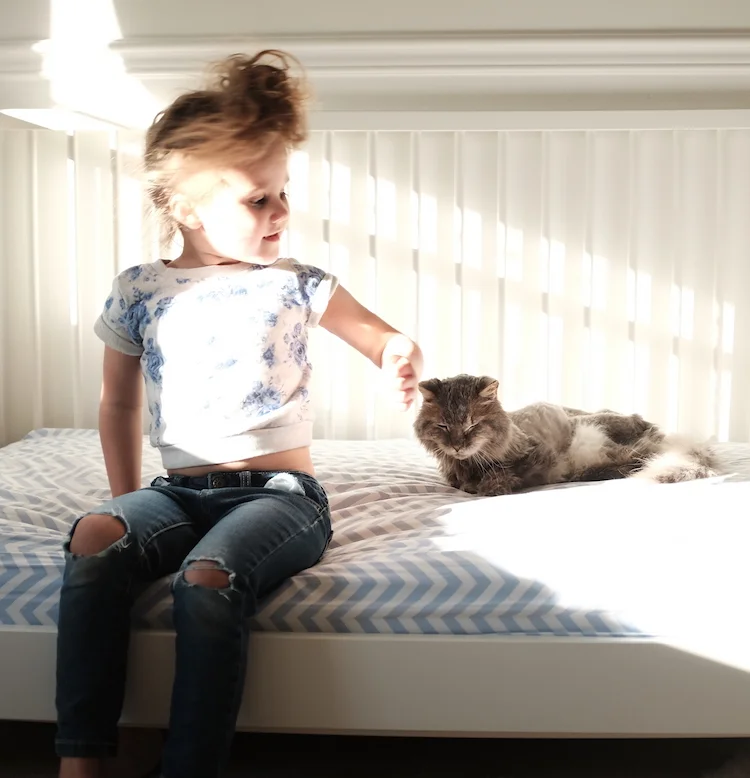
Here is the story as I hear it, and I'm going to list my assumptions as well: When you took Kasper & Bjørn to the vet, and eventually found success in treating their urinary tract infection, you had some bloodwork done. And even though you solved the urinary tract infection (all the urine tests including a culture and sensitivity came back normal), the bloodwork happened to show them with elevated creatinine. Stage II to be precise. The bloodwork shows calcium to be normal, and there is no reasonable expectation of kidney stones (xrays show nothing).
For those of you who don’t know what creatinine is, see this video: http://www.iwillhelpyourcat.com/blog/2014/11/30/knowing-creatinine-can-add-years-to-their-life
Ok, so Kasper & Bjørn went to the hospital, not because they kidney issues causing them problems, but we happen to find along the way that it was elevated. In other words, Kasper & Bjørn are non-clinical for chronic kidney disease. They are in a compensated stated. This means despite their kidneys being inefficient at their job, they are still keeping up with their tasks, and your cat is unaware of it. Some cats live most of their long lives this way!
So, when they are in this state, we get to make some choices for them - because the right choices can keep them in that compensated state for a long time. And the wrong choices can do the opposite. So the first thing that I want you to know, is that you are off to a good start. Regardless what the bloodwork says, you are already “ahead of the curve”.
You know what it looks like to try and keep creatinine levels only going lower when they are in a compensated state?
Like this:
Photo Credit: Will Thomas of http://forgemountainphoto.com/
Rough n’ tumble. You shift your weight, adjust your balance, but you still get dumped on the floor. Relying on bloodwork alone as a measure of success will leave you sucking wind on the dirt floor every time for this particular issue. Why?
Although we tend to think of CKD (chronic kidney disease) as one thing, there are a dozen reasons why the kidneys can and do become afflicted to the point that creatinine increases in the blood. What that means is that someone might have success doing one type of therapy, buy it might not work the same for your cat, because the underlying issue within the kidney is different amongst cats.
In terms of accuracy, we might as well call CKD something different, like ADR. As in kidneys “Ain’t Doing Right” for some reason.
All to say, in some respects, bloodwork is dumb. Bloodwork is a snapshot in time, that tells you about your cat’s internal state for an instant. And creatinine is pretty insensitive. It’s a guide. But it’s equivalent to a drunken Sherpa that has had too much Chhaang to drink, guiding you through the forest at night with no compass.
So it’s a guide that I use daily but I always put it into perspective, because it doesn't reflect quality of life. It can also mislead if not interpreted in light of so many other things.
Some people won’t agree with that. That’s totally OK. There are times when you are measuring specific things and looking for an absolute outcome, for sure. But for compensated CKD cats, the situation is often different, and you want to look at a few other things to guide you along the way. Which are:
- Stable body weight. Investing in a baby scale is just as important as investing in a bloodwork.
- “Skinny back” (see this link) means you have to ramp something up in your routine with cats.
- Check your cats urine protein to creatinine ratio. If it’s high, it’s a sign that your cat’s kidneys are having a harder time compensating. It is just as, if not more important than creatinine.
- Make sure their blood pressures are ok.
- Fish oil to the food. Maybe your cat’s elevated creatinine is caused by glomerulonephritis, and so this is applicable to them.
- Calcitriol. Helps eliminate the hidden renal “toxins” that bloodwork does not always show, and therefore may slow the progression.
- Rate of change. For any of the bloodwork parameter, the rate of change (and not the change itself) can direct what you do next.
Using calcitriol or any of the techniques above is not for everyone. But when you say “I love them like they are my children and we do everything we can to take good care of them”, you are my kind of people! Pick and choose what makes most sense for you and these kitties. Know that what works for some people might not work for them, BUT, the opposite is also true.
And thank you for being such great stewards towards to Kasper & Bjørn, who bring you so much happiness! They sound like great cats!
Cheers,
Kris
